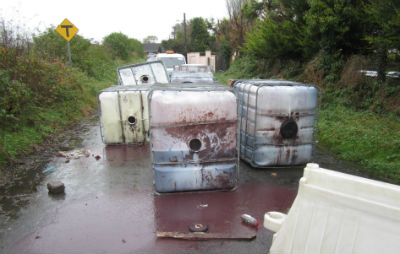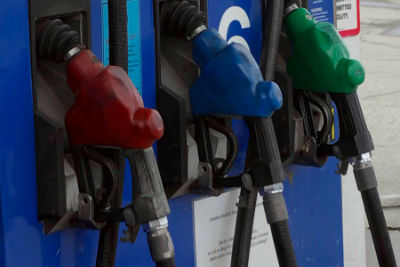Fuel laundering – An industry perspective

Brian Donaldson is the chief operating officer at Maxol, a family run business that has been operating for over 100 years. Here, he outlines the government measures already taken to limit Ireland’s trade in laundered fuels and the further work that needs to done.
5 December 2013
 Brian Donaldson, chief operating officer at Maxol
Brian Donaldson, chief operating officer at Maxol
Unsurprisingly, fuel laundering has had a considerable impact on the Maxol business in recent years. There has been an escalation in the number of rogue sites set up under different own-label brands right across the country. Many people have the perception that the problem of laundered fuel is focused around the border area but it goes much further. Laundered fuel has become an epidemic and is freely available across the Republic of Ireland. Launderers have brought unwelcome competition on an uneven playing field to legitimate businesses.
Impact to Maxol
The Maxol group has a network of 227 service stations in Ireland of which 117 are in the Republic of Ireland. “Laundered fuel did have a big impact on the diesel sales we were selling through our branded network. That was having an impact on the profitability of our dealers because they were obviously losing those sales.” Research carried out by the Irish Petrol Retailers Association (IPRA) indicates that there are well over 100 illegal sites across Ireland.
As part of this research, a value of around €200 million was put on lost revenue to the exchequer. That doesn’t take into account the lost profit and sales to the legitimate trade.
Of course the sellers of the laundered product were not providing any customer care to those people who later found they had problems with their vehicles. Inevitably those customers tried to come back to Maxol retailers looking for them to take care of the costs involved. This activity represents a short term gain for criminals with a long term detrimental cost to the consumer.
Revenue and new legislation
Brian Donaldson is impressed with the work that Revenue has done to date in relation to laundered fuel. The epidemic started in 2011 and escalated quite heavily in 2012 but already Revenue has brought in legislation that is dealing with the issue.
“As an industry, through the IPRA and also the Irish Petrol Industry Association (IPIA), we have worked very closely with Revenue and they have now produced a new licensing system. Revenue has also put in place the monthly reporting of all purchases into a service station and all sales out. What the government has is the complete circle and a full traceability scheme, from where product comes into the country to where it eventually ends up. I would certainly commend the Revenue commissioners for their speed of action in putting that system in place. They are now building a vast amount of information which they can interrogate to target where they have specific problems.”
 Toxic waste found in Louth
Toxic waste found in Louth
Is the regulation working?
This scheme was certainly needed and will enable the authorities to track the product going into a site. They can also report where it came from and the quantities involved.
For those operating outside of the law this new regulation should send an important message. It gives Revenue a clear line of investigation to trace and allows them to close in on rogue traders. “Certainly the progress that has been made to date is welcome but ultimately there is a lot more to do,” Donaldson notes.
From the second quarter this year, Maxol started seeing a big improvement on diesel sales. The company believes this can be directly attributed to the new legislation. It is now much more difficult for illegal operators to enter the trade but they haven’t been eliminated entirely. “Many rogue sites are still trading and there is a large volume of adulterated fuel being made freely available to the general public to buy and people continue to buy it,” the COO adds.
Penalties
An important aspect of regulation is ensuring that the penalties are acting as a deterrent. They should be severe to the extent that people are discouraged from going back into that business. “We feel that if you have been involved in illegal trade and you have been identified and it’s been completely proved then that site should not be allowed to re-open or that person shouldn’t be granted another licence.” That may sound harsh to some but Donaldson feels sufficient penalties should be in place.
“A custodial sentence of two years was issued which does send a message that if you are involved in illicit activities you will have to do your time. I think the government and the authorities are doing a lot of good work but an awful lot of other work needs to be done. It is very slow in terms of court process…Maybe that’s something we need to look at in terms of getting it accelerated.”

What the industry is doing
Maxol introduced the ‘Fuels you can trust’ quality and traceability scheme in the Republic of Ireland a couple of years ago. This received a very positive reaction from customers, and retailers could also see that it brought in new business.
“Maxol is a long established brand with a long standing reputation. When we introduced the scheme it gave people further reassurance. Probably retailers that weren’t customers of ours before would have moved to us because they would have seen that as something very important to them,” says Donaldson.
Raising awareness
Awareness campaigns introduced by government are a popular solution for most industries. The introduction of a campaign encouraging customers to be mindful in terms of where they are buying their fuel and whether it’s from a legitimate retailer would be welcomed.
“Our message is support the legitimate trade. Support your local brand and make sure the state is collecting as much as they are entitled to in terms of excise duty. You are better paying taxes to the country for the betterment of people rather than those taxes being avoided and going to the illegal trade. Illegal trade is costing the councils an awful lot of money to clean up in terms of the residual product.”
Fortunately, the budget didn’t bring further excise duty increases for petroleum products. Higher duty could have created another opportunity for the launderers to get a further hold on the industry.



 Print
Print






Fans 0
Followers